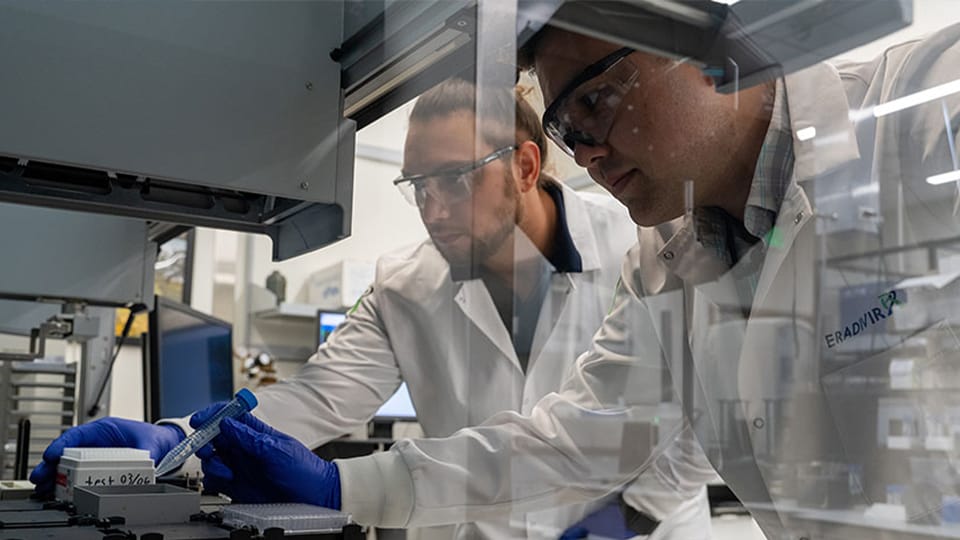Purdue startup secures $10M in Series A funding for flu treatment research
Subscriber Benefit
As a subscriber you can listen to articles at work, in the car, or while you work out. Subscribe Now
A biotech company founded by a Purdue University chemistry professor has completed a $10.25 million Series A round of funding to further study its new influenza treatment that has shown rapid results.
West Lafayette-based Eradivir plans to conduct a Phase 2a challenge study of its EV25 influenza treatment, the university said Monday. EV25 was built on a drug platform technology created by Eradivir co-founder and Purdue chemistry professor Philip Low, who is on the faculty of the Purdue Institute for Drug Discovery and the Purdue Institute for Cancer Research.
Eradivir CEO Martin Low, brother of Philip and a co-founder of the company, said EV25 in preclinical models has outperformed existing standards of treatment.
“Within 24 hours of taking EV25, the amount of live virus present in preclinical models was reduced to nondetectable amounts,” Martin Low said in a news release.
Eradivir received $10.8 million in previous funding rounds along with $1 million from the National Science Foundation and the Center for Biomedical Advanced Research and Development Authority, a division of the U.S. Department of Health and Human Services.
The Series A round was raised through investments from Philip Low, board members and other company members, small institutions, friends and family, the university said.
“Our investors’ agenda aligns well with Phil’s and Purdue’s objectives,” Martin Low said. “Some of the proceeds from EV25, and perhaps other assets, will be reinvested in additional molecules discovered and developed at Eradivir and, by extension, Purdue.”
Eradivir currently employs 10 people, with three additional being supported through a gift to Purdue, according to Martin.
Low said the company is looking to raise another $10 million to conduct a Phase 2b patient study.
“The Phase 2a and Phase 2b trials will collectively demonstrate EV25’s safety and efficacy in humans, starting with proof of concept and culminating in a real-world setting,” he said.
